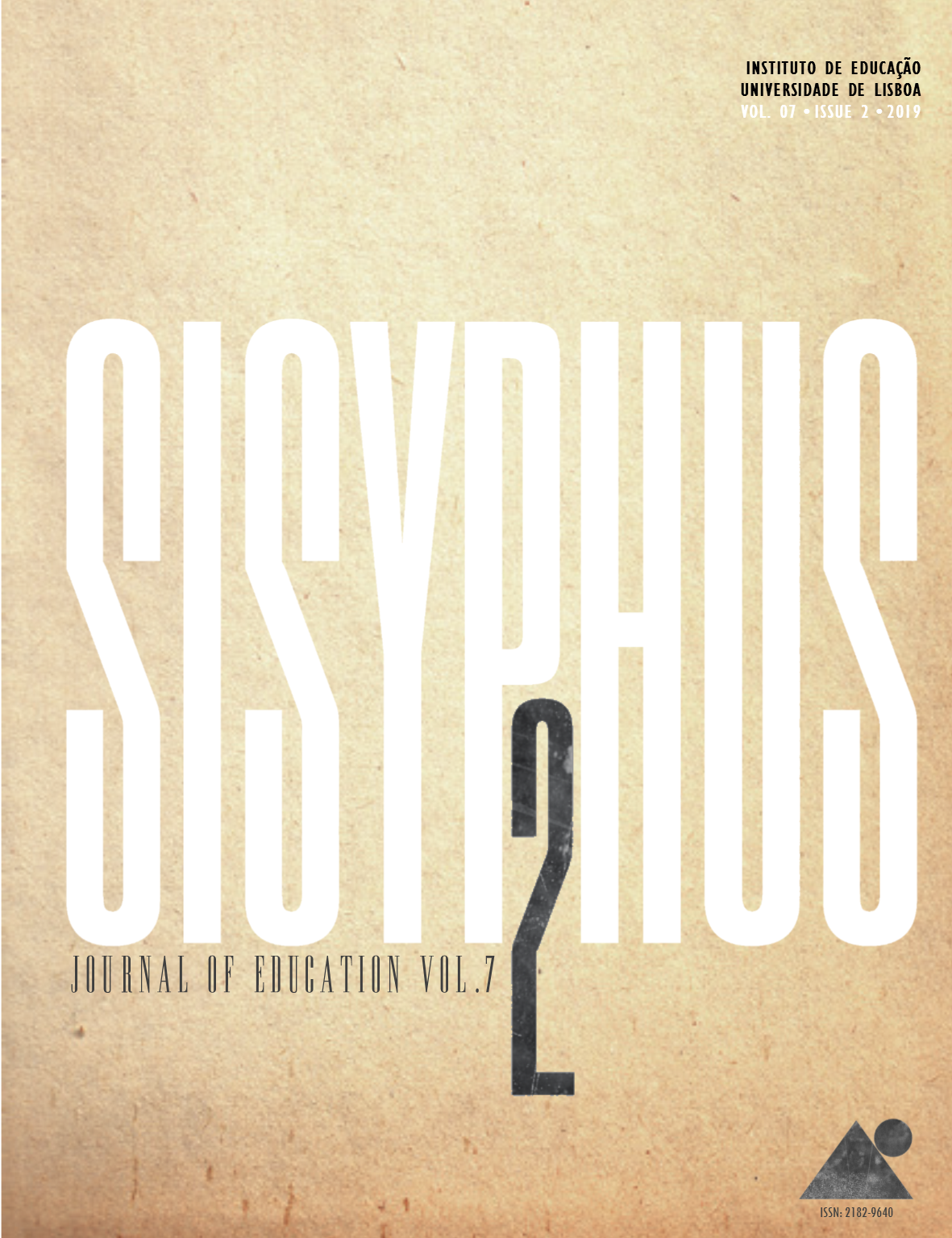Cidades educadoras
Desenvolvimento Comunitário na Educação e Aprendizagem dos Adultos de Carácter Participativo
DOI:
https://doi.org/10.25749/sis.17702Palavras-chave:
cidades educadoras, educação de adultos, aprendizagem ao longo da vida, investigação em educação de adultos, desenvolvimento comunitárioResumo
Este artigo analisa a evolução do conceito de cidade e região educadora e o desenvolvimento desta ideia na investigação em educação de adultos. A investigação neste domínio pode contribuir para a compreensão dos mecanismos de construção concretos das cidades e regiões educadoras; pode ainda permitir interpretar as mudanças da natureza e da estrutura dos modelos de cidade e região educadora a partir de exemplos como os de Cork, na Irlanda, e de Pécs, na Hungria.
Este texto procura destacar os aspetos mais importantes dos modelos referidos e as relações que se estabelecem nos níveis local e regional, destacados pela OCDE e a UNESCO. Nestes casos, a participação e a aprendizagem dos adultos podem ser promovidas, assim como a aprendizagem de sujeitos pertencentes a outros grupos etários, enfatizando-se por esta via dimensões da aprendizagem transgeracional e do desenvolvimento comunitário.
Downloads
Referências
Allison, J., & Keane, J. (2001). Evaluating the role of the Sunshine Coast University (USC) in the regional economy. Local Economy, 16(2), 123-141.
Amin, A., & Thrift, N. (1995). Institutional issues for the European regions: from markets and plans to socio-economic and powers of association. Economy & Society, 24, 41-66.
Boekema, F., Morgan, K. J., Bakkers, S., & Rutten, R. (Eds.) (2000). Knowledge, innovation and economic growth: the theory and practice of learning regions. Northampton, MA: Edward Edgar.
Cannon, T., Nathan, M., & Westwood, A. (2003). ‘Welcome to the Ideopolis’, Work Foundation Working Paper. London: The Work Foundation.
Cooke, P., & Morgan, K. (1998). The Associational Economy. Oxford: Oxford University Press.
Department of Education and Science. (2000). Learning for Life: White Paper on Adult Education. Dublin: Government of Ireland. Retrieved from: https://www.education.ie/en/Publications/Policy-Reports/fe_aduled_wp.pdf
EC – European Commission. (2002). European Networks to promote the local and regional dimensions of Lifelong Learning. The R3L initiative. Call for Proposal. (EAC/41/02) – (2002/C 174/06). Brussels: EC.
Edquist, C. (Ed.) (1997). Systems of Innovation: technologies, institutions and organisations. London: Pinter.
Florida, R. (1995). Towards the learning Region. Futures, 27(5), 527-536.
Keane P., Lane, Y., Neylone, T., & Osborne M. (2013). The Learning Festival: Pathway to Sustainable Learning Cities? Adult Learner: The Irish Journal of Adult and Community Education, 90-99.
Keeble, D., Lawson, C., Moore, B., & Wilkinson, E. (1999). Collective learning processes, networking and institutional thickness in the Cambridge region. Regional Studies, 33(4), 319-332.
Longworth, N. (1999). Making Lifelong Learning Work: Learning Cities for a Learning Century. London: Kogan Page.
Longworth, N., & Franson, L. (Eds.) (2001). The TELS Project Towards a European Learning Society. Final Report, European Commission, Socrates Program, European Lifelong Learning Initiative.
Lundvall, B-A., & Johnson, B. (1994). The learning economy. Journal of Industry Studies, 1, 23-42.
Neylon, T. (2016). Case Study 06 Ireland – Cork. In R. Valdes-Cotera, N. Longworth, K. Lunardon, M. Wang, S. Jo & S. Crowe (Eds.), Unlocking the Potential of Urban Communities. Case Studies of Twelve Learning Cities (pp. 72-84). Hamburg: UIL.
Neylon, T., & Barrett, D. (2013). Why Cork’s Learning Festival is committed to EcCoWell in Precedings of Cities Learning Together: Local Communities in the Sustainable and Healthy Learning Cities. Hong Kong. Retrieved from: https://www.scribd.com/document/188525260/FINAL-Precedings-WEBcopy2013-11-28
Ó Tuama, S. (2016). Cork Learning City: Building a Community Wide Learning Environment. Personal- und Organisationsentwicklung, 3-4(11), 78-83.
Organisation for Economic Co-operation and Development. (2000). Learning Regions and Cities: Knowledge, Learning and regional Innovation Systems. Paris: OECD.
Organisation for Economic Co-operation and Development. (2007). Higher Education and Regions. Globally Competitive, Locally Engaged. Paris: OECD-IMHE.
Razavi, M. (1997). Learning to Industrialize: a comparative study of four industrial poles in Brazil and Iran (Dissertation submitted, Graduate Program in Urban Planning and Policy Development). Rutgers University, New Brunswick, New Jersey, United States of America.
Senge, P. (1990). The Fifth Discipline: The Art and Practice of the Learning Organisation. New York: Currency.
Tooke, J. (2000). Learning regions: the politics of knowledge at work. Planning and Environment A, 32(5), 764-768.
UNESCO (2013). Report on Conference on Learning Cities in Beijing. Retrieved from: http://uil.unesco.org/lifelong-learning/learning-cities/conference-report-international-conference-learning-cities-beijing
Wolfe, D. A., & Gertler, M. S. (2001). Globalization and Economic Restructuring in Ontario: From Industrial Heartland to Learning Region? European Planning Studies, 9(5), 575-592.
Yarnit, M. (2000). Towns, cities and regions in the learning age: a survey of learning communities. London: DFEE.
Downloads
Publicado
Edição
Secção
Licença
O Copyright (c) pertence à Sisyphus – Journal of Education. No entanto, encorajamos que os artigos publicados na revista sejam publicados noutros lugares, desde que seja solicitada a autorização da Sisyphus e os autores integrem a nossa citação de fonte original e um link para o nosso site.
Política de auto-arquivo
É permitido aos autores o auto-arquivo da versão final publicada dos seus artigos em repositórios institucionais, temáticos ou páginas web pessoais e institucionais.
Subscritor DORA
O Instituto de Educação da Universidade de Lisboa, editor da Sisyphus, é um dos subscritores da Declaração de São Francisco sobre Avaliação da Investigação (DORA).





